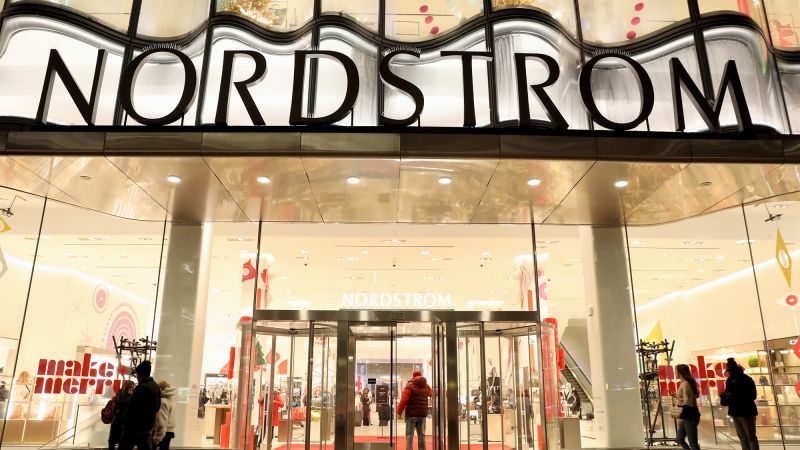New York
Nordstrom, the upscale department store chain, is going private in a $6.25 billion deal with its founding family.
The retailer announced Monday that the family Erik, Pete and Jamie Nordstrom as well as Mexican department store chain El Puerto de Liverpool will acquire the remaining shares they don’t own, giving the family a majority ownership stake in the 123-year-old company.
Shareholders will receive $24.25 in cash for each share, a roughly 42% premium of the stock based on the price on March 18, 2024 when speculation about Nordstrom (JWN) being taken private began. The stock fell 1% in in early trading and is up more than 30% for the year.
“For over a century, Nordstrom has operated with a foundational principle of helping customers feel good and look their best,” said CEO Erik Nordstrom in a press release. “Today marks an exciting new chapter for the business. On behalf of my family, we look forward to working with our teams to ensure Nordstrom thrives long into the future.”
Nordstrom’s founding family tried taking the retailer private in 2018 at $50 per share, but the board said that was too low of a price. Monday’s announcement marks a stunning decline from the company’s pre-pandemic peak with its stock worth roughly half since then.
Like other department stores, Nordstrom has suffered from consumers cutting back on discretionary spending and shifting their habits to online rivals, like Amazon or rental startups such as Nuuly. In July, Saks Fifth Avenue and Neiman Marcus announced a merger giving them more leverage to negotiate with luxury brands for lower costs.
Neil Saunders, managing director of GlobalData, praised the change in a note writing that the family and their backers can “make necessary investments and changes away from the short term scrutiny of public markets.”
“The family have the talent and ability to enact change as does El Puerto de Liverpool. They will likely run the business as a retailer rather than as some kind of financial play thing which, in our view, is a very positive thing for the long term health of the brand,” Saunders said.
Department stores are at a crossroads, with rivals Macy’s and Bloomingdale’s coming under pressure from investors who think the companies’ real estate might be more valuable than its retail operations. Macy’s has, so far, shrugged off activist investors’ attempts at making major changes.
The Nordstrom deal, which is expected to close in early 2025, has to be approved by two-thirds of the company’s common stockholders.
